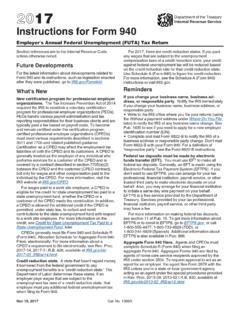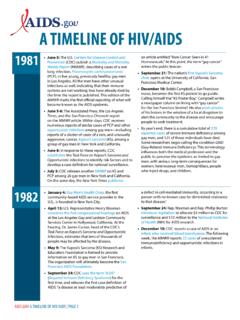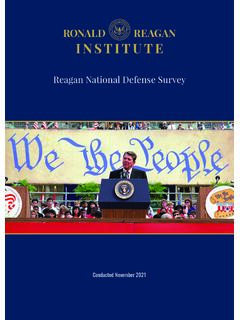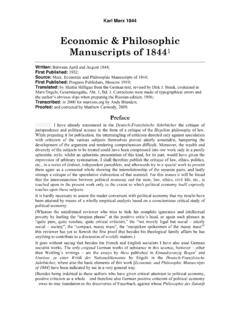Transcription of UNITED STATES-THE PEOPLE'S REPUBLIC OF CHINA INCOME …
1 UNITED STATES-THE PEOPLE'S REPUBLIC OF CHINA INCOME TAX CONVENTIONA greement And Related Protocol Signed at Beijing on April 30, 1984;Second Protocol Signed at Beijing on May 10, 1986;Ratification Advised by The Senate of The UNITED States of America on July 24, 1986;Instruments of Ratification Exchanged on October 22,1986;Entered into Force on January 1, EFFECTIVE DATE UNDER ARTICLE 27: 1 JANUARY 1987 TABLE OF ARTICLESA rticle 1---------------------------------Person s CoveredArticle 2---------------------------------Taxes CoveredArticle 3---------------------------------Defini tionsArticle 4---------------------------------Reside nceArticle 5---------------------------------Perman ent EstablishmentArticle 6--------------------------------- INCOME from Real PropertyArticle 7---------------------------------Busine ss ProfitsArticle 8---------------------------------Relate d EnterprisesArticle 9---------------------------------Divide ndsArticle 10--------------------------------Intere stArticle 11--------------------------------Royalt iesArticle 12--------------------------------GainsA rticle 13--------------------------------Indepe ndent Personal ServicesArticle
2 14--------------------------------Depend ent Personal ServicesArticle 15--------------------------------Direct ors FeesArticle 16--------------------------------Artist es and AthletesArticle 17--------------------------------Pensio ns and AnnuitiesArticle 18--------------------------------Govern ment Employees and PensionsArticle 19--------------------------------Teache rs, Professors and ResearchersArticle 20--------------------------------Studen ts and TraineesArticle 21--------------------------------Other IncomeArticle 22--------------------------------Elimin ation of Double TaxationArticle 23--------------------------------Nondis criminationArticle 24--------------------------------Mutual AgreementArticle 25--------------------------------Exchan ge of InformationArticle 26--------------------------------Diplom ats and Consular OfficersArticle 27--------------------------------Entry into ForceArticle 28--------------------------------Termin ationProtocol 1--------------------------------of 30 April, 1984 Letter of Submittal---------------------of 24 July, 1984 Letter of Transmittal-------------------of 10 August, 1984 Notes of Exchange ---------------------of 30 April.
3 1984 Protocol 2--------------------------------of 10 May, 1986 Letter of Submittal (Protocol 2)------of 20 May, 1986 Letter of Transmittal (Protocol 2)----of 5 June, 1986 The Saving Clause -------------------Paragraph 2 of the Protocol 1 of 30 April, 1984 TAX AGREEMENT WITH THE PEOPLE'S REPUBLIC OF CHINAMESSAGEFROMTHE PRESIDENT OF THE UNITED STATESTRANSMITTINGTHE AGREEMENT BETWEEN THE GOVERNMENT OF THE UNITED STATES OF AMERICA AND THEGOVERNMENT OF THE PEOPLE'S REPUBLIC OF CHINA FOR THE AVOIDANCE OF DOUBLETAXATION AND THE PREVENTION OF TAX EVASION WITH RESPECT TO TAXES ON INCOME ,TOGETHER WITH A SUPPLEMENTARY PROTOCOL AND EXCHANGE OF NOTES, SIGNED AT BEIJINGON APRIL 30, 1984 LETTER OF SUBMITTALDEPARTMENT OF STATE,Washington, July 24, PRESIDENT,The White House. THE PRESIDENT: I have the honor to submit to you, with a view to its transmission to the Senate for adviceand consent to ratification, the Agreement between the Government of the UNITED States of America and theGovernment of the PEOPLE'S REPUBLIC of CHINA for the Avoidance of Double Taxation and the Prevention of TaxEvasion with Respect to Taxes on INCOME , together with a supplementary protocol and exchange of notes, whichyou signed at Beijing on April 30, 1984.
4 The agreement is the first complete INCOME tax treaty to be signed with the PEOPLE'S REPUBLIC of CHINA . Alimited treaty affecting the taxation of INCOME from international shipping and aircraft operations was signed atBeijing on March 5, 1982, (97th Cong. 2d. Sess., Senate Treaty Doc. No. 97-24, June 16, 1982) and is presently inforce. The present agreement is based on model INCOME tax treaties prepared by the Department of the Treasury, theUnited Nations, and the OECD. Like other UNITED States tax treaties, it provides rules for determining the extent towhich each country may tax particular types of INCOME . Where the host country may tax, it agrees to impose itsincome tax in a non-discriminatory manner. The agreement provides that the country of residence will give a foreigntax credit for INCOME tax paid to the other country.
5 If any potential problems of double taxation should arise, the taxofficials of the two countries agree to consult to try to resolve them. All provisions of the agreement are reciprocal. Some will benefit especially UNITED States investors. Forinstance, investors will know before undertaking a transaction in CHINA what the INCOME tax consequences will profits will not be taxable by CHINA unless attributable to a "permanent establishment", as defined in theagreement. Taxation by CHINA of the remuneration of UNITED States citizens who are self-employed or employed byprivate firms is generally permissible only if they remain in CHINA more than six months a year. In addition, theagreement limits the tax which each country may impose on dividends, interest and royalties derived by residents ofthe other country to no more than 10 percent in each case.
6 The protocol clarifies certain provisions of the agreement and also provides for cooperation between the taxofficials of the two countries to prevent tax evasion. In the accompanying exchange of notes, the UNITED States agrees to amend the treaty with CHINA to include a"tax sparing credit" if such a provision is ever included in a UNITED States tax treaty with another country. Presently,the UNITED States does not permit a "tax sparing" credit, a foreign tax credit for the statutory full amount of theforeign tax even if, in fact, that tax has been reduced or waived as an incentive. It is a firm element of policythat a foreign tax credit be given only for foreign INCOME taxes actually paid. The agreement provides that the Contracting States shall notify each other in writing, through diplomaticchannels, upon the completion of their respective legal procedures to bring the agreement into force.
7 The agreementwill enter into force on the thirtieth day after the date of the latter of such notifications and shall take effect withrespect to INCOME derived during taxable years beginning on or after the first day of January next following the dateon which the agreement enters into force. A technical memorandum explaining in detail the provisions of the agreement is being prepared by theDepartment of the Treasury and will be submitted separately to the Senate Committee on Foreign Relations. The Department of the Treasury, with the cooperation of the Department of State, was primarily responsible forthe negotiation of the agreement. It has the full approval of both Departments. Respectfully submitted,George P. SchultzLETTER OF TRANSMITTALTHE WHITE HOUSE, August 10, the Senate of the UNITED States: I transmit herewith for Senate advice and consent to ratification the Agreement between the Government of theUnited States of America and the Government of the PEOPLE'S REPUBLIC of CHINA for the Avoidance of DoubleTaxation and the Prevention of Tax Evasion with Respect to Taxes on INCOME , together with a supplementaryprotocol and exchange of notes, signed at Beijing on April 30, 1984.
8 I also transmit the report of the Department ofState on the Agreement. The Agreement is the first complete INCOME tax treaty between the two countries. A limited treaty concerningthe taxation of INCOME from international shipping and air transportation, signed at Beijing on March 5, 1982, wasapproved by the Senate on July 27,1983 and is now in force. The Agreement is based on model INCOME tax treaties developed by the Department of the Treasury, theOrganization for Economic Cooperation and Development, and the UNITED Nations. The provisions of theAgreement are reciprocal and, like other tax treaties, represent a balanced package of benefits and concessions. The Agreement will contribute to a long-run expansion of economic relations between the two countries byproviding clear rules as to the tax consequences of investing or working in the other country.
9 It reduces the taxwhich residents of one country must pay to the other on certain types of INCOME , such as dividends, interest, androyalties and provides limited exemptions for visiting teachers, researchers and students. The Agreement alsoassures nondiscriminatory taxation in the host country, and, provides a mechanism for cooperation between the taxauthorities to try to resolve any potential problems of double taxation. I recommend that the Senate give early and favorable consideration to the Agreement and give its advice andconsent to BETWEEN THE GOVERNMENT OF THE UNITED STATES OF AMERICA AND THEGOVERNMENT OF THE PEOPLE'S REPUBLIC OF CHINAFOR THE AVOIDANCE OF DOUBLE TAXATION AND THEPREVENTION OF TAX EVASION WITH RESPECT TO TAXES ON INCOME The Government of the UNITED States of America and the Government of the PEOPLE'S REPUBLIC of CHINA , Desiring to conclude an Agreement for the avoidance of double taxation and the prevention of tax evasion withrespect to taxes on INCOME , Have agreed as follows:ARTICLE 1(Persons Covered) This Agreement shall apply to persons who are residents of one or both of the Contracting 2(Taxes Covered) 1.
10 The taxes to which this Agreement applies are(a) in the PEOPLE'S REPUBLIC of CHINA :(I) the individual INCOME tax;(ii) the INCOME tax concerning joint ventures with Chinese and foreign investment;(iii) the INCOME tax concerning foreign enterprises;(iv) the local INCOME tax (herein after referred to as "Chinese tax").(b) in the UNITED States of America: the Federal INCOME taxes imposed (hereinafter referred to as" UNITED States tax"). 2. The Agreement shall apply also to any identical or substantially similar taxes which are imposed after the dateof signature of the Agreement in addition to, or in place of, those referred to in paragraph 1. Within an appropriatetime period, the competent authorities of the Contracting States shall notify each other of any substantial changeswhich have been made in their respective taxation 3(Definitions) 1.















